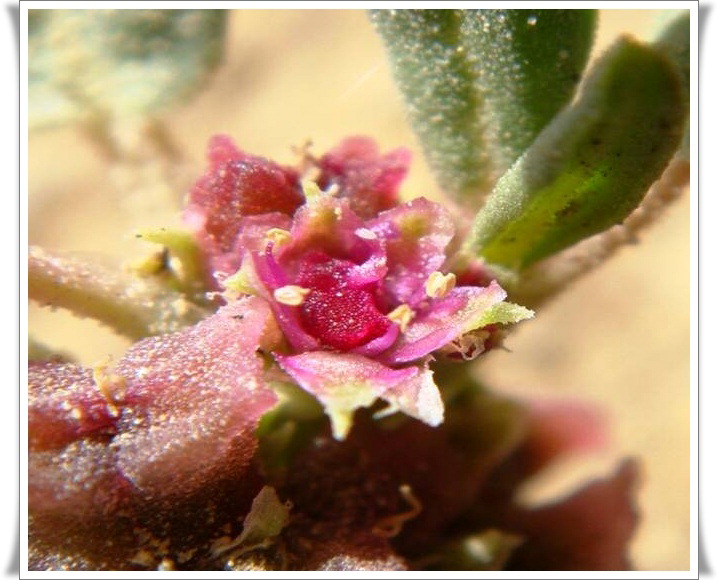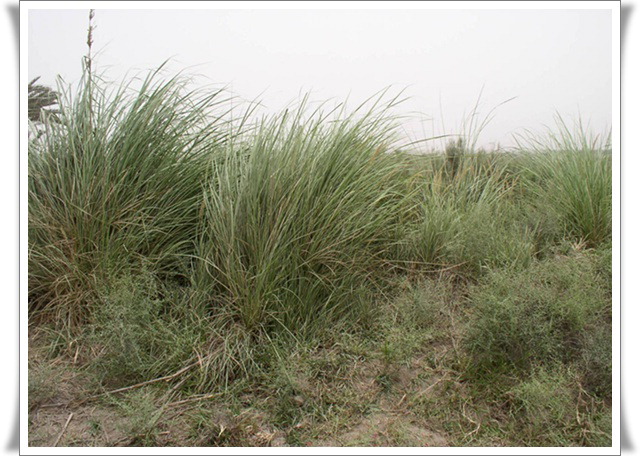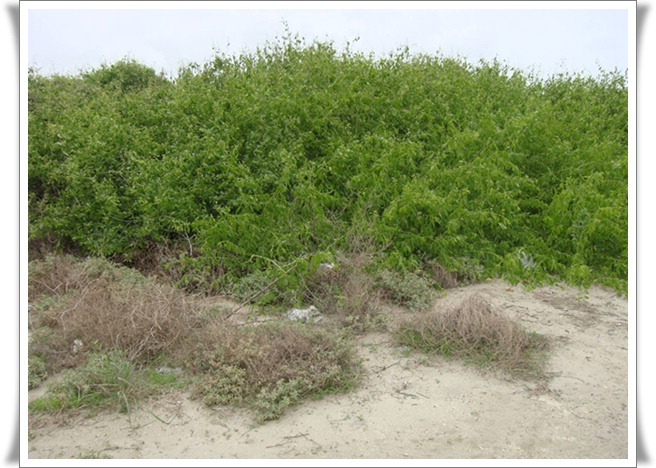Project Overview
This project aims to contribute to the search for nonconventional crops suitable for use in regions facing diminishing quality of water and land resources. With urban expansion taking increasing amounts of prime agricultural land and freshwater resources, there is a growing need for crop plants that can be grown in areas of high salinity. This would allow agricultural crop production near oceans and in other areas that have become more saline over time due to heavy past irrigation. However, the potential of halophytes - natural flora of saline habitats - has been under-examined, and their utilization may allow production of considerable plant biomass under these conditions. This could provide great economic value to farmers in traditionally poor regions of Pakistan and other countries, but the challenge is to determine how to use them commercially and to find an appropriate niche where they could be grown efficiently to produce good quality food, fodder, medicines, oilseeds, and so forth. The researchers involved in this project will analyze three plant species with potential for use as such nontraditional crops. Beyond helping to improve the capacity of the Pakistani researchers involved and building their laboratory infrastructure, the project should also contribute to the reclamation of arid land in Pakistan for productive use by subsistence farmers and lead to new applications that can be extended to other countries as well.
Quarterly Update
The research team has completed a basic RNA genetic analysis of the Suaeda Fruticosa, a halophyte plant which has considerable potential for development as a crop. In so doing, the team has identified a number of genes that could be involved in salt tolerance, a characteristic of which little is known in succulent halophytes such as Suaeda Fruticosa. The researchers have also collected and analyzed further ecophysiological data of this plant and the ecophysiological and biochemical data of the plant Desmostachya Bipinnata under varying salt conditions. They plan to complete the manuscripts relating to this data during the next quarter.
With the collaboration of Dr. John Prince at Brigham Young University, Drs. Bellfield and Saeed have continued to analyze the Suaeda Fruticosa proteome. The team has conducted quantitative PCR analysis to compare transcriptome and proteome data and to see if any changes in chloroplast or mitochondrial proteins are due to changes in levels of DNA. This will lead to a manuscript focused on the proteomics analysis that they plan to submit during the last quarter of 2014. One manuscript has already been accepted for publication in the proceedings volume from the International Conference on Halophytes for Food Security in Dry Land in Doha, Qatar. Both PIs attended and presented research talks at this Conference in May.
|
  
Suaeda fruticosa, Desmostachya bipinnata, and Salvadora persica.
|
Progress Reports
Show all progress summaries | Hide progress summaries
2011 Show summary || Hide summary
A workshop on advances in the ecophysiology of salt tolerance was organized at the Institute of Sustainable Halophyte Utilization in Karachi April 11-13, 2011, with speakers from Pakistan, Japan, and Germany participating. Dr. Nielsen and Dr. Gerry Edwards of Washington State University presented lectures through videoconferencing, and about 50 students and faculty attended. Meanwhile, germination, growth optimization, and salt tolerance experiments on Salvadora persica continued to progress well in the Karachi lab, with almost all work on that species being completed by the end of September 2011. Co-PI Dr. Bilquees Gul began a one-year training visit to BYU at the start of June, bringing with her samples of seeds from all three species being studied. Her input was very helpful in optimizing growth conditions for the plants in the BYU greenhouse, and preliminary growth and salinity tolerance experiments are now proceeding, with the primary focus initially being Desmostachya bipinnata and samples of the other two species beginning to be harvested in late July. Dr. M. Ajmal Khan also joined the team at BYU for a one-month visit beginning in mid-August, and in September Dr. Gul took part in a week-long proteomics training course at the National Institutes of Health. In addition to the experimental work being carried out on both sides, Dr. Nielsen has delivered weekly lectures by videoconference to staff and students in the Karachi lab, with the topics for each session drawn from chapters in the classic textbook Molecular Biology of the Gene (Watson et al.). One or two more Pakistani scientists are expected to come to BYU for training in 2012 and 2013. In the coming months these researchers will be continuing their experiments on the effects of various salinity levels on plant growth, including work on optimizing protein extraction and gel electrophoresis methods. Meanwhile, they report that they have been contacted by representatives of several private companies in the United States and Pakistan interested in developing halophyte plants for commercial production.
2012 Show summary || Hide summary
At the end of May 2012, Pakistani co-PI Dr. Bilquees Gul completed her one-year visit to BYU, during which she focused on research on the proteomics of proteins from various halophyte plants. She has prepared cDNA libraries for each of the three species included in this study (Salvadora persica, Desmostachya bipinnata, and Suaeda fruticosa) at different salt treatment levels. Illumina sequencing has been initiated on several samples to obtain transcriptome data. She and Dr. Nielsen have been collaborating with Dr. John Prince, a biochemistry professor at BYU who is assisting with the mass spectrometry and proteomics work. Although Dr. Gul has returned to Pakistan, the three researchers continue to collaborate to analyze their data, and they expect to submit a publication on the Suaeda fruticosa proteome by the end of the summer, with additional manuscripts on proteome data from the other species to follow in the coming year. Dr. Nielsen and his graduate student, Joanne Arce, will continue their sequencing and analytical efforts, while Dr. Khan and his colleagues at the University of Karachi are pursuing their experiments and gathering data on specimens of the three plant species. For the Pakistani team, their primary challenge is to gain experience with some of the novel DNA and protein sequencing approaches being used in the project as they expand their expertise from data acquisition to data analysis. As part of this capacity building effort, one or more Karachi-based faculty members and/or students are expected to visit BYU in the final year of the project.
2013 Show summary || Hide summary
The U.S. team is using next generation RNA sequencing to analyze the expressed genes of Suaeda fruticosa a succulent halophyte (salt tolerant) species with potential as a crop for seed oil or other applications. RNA from these plants grown under three conditions of no salt (control), optimal salt, and high salt (salt shock) was purified, converted to DNA and sequenced. This data is being analyzed to identify genes that are induced or repressed in plants grown in each salt condition. One graduate student and 5 undergraduate students have been mentored as part of this project in the U.S. Dr. Nielsen continues to collaborate with Dr. John Prince, a biochemistry professor at BYU who is assisting with the mass spectrometry and proteomics work. Total protein analyses have been conducted on all three samples using the mass spectrometer and proteomics analysis identifying proteins potentially involved in salt tolerance. Initially, the focus is on Suaeda fruticosa but subsequently it will expand to the other species as well. A new graduate student, Joann Arce, has joined Dr. Nielsen’s lab at BYU and began work on the project. The research team aims to submit a manuscript on their work for publication by summer 2013 when the Pakistani PI or co-PI visit in July or August.
Back to Pakistan-US Science and Technology Cooperation Program Phase 4 Grants List






